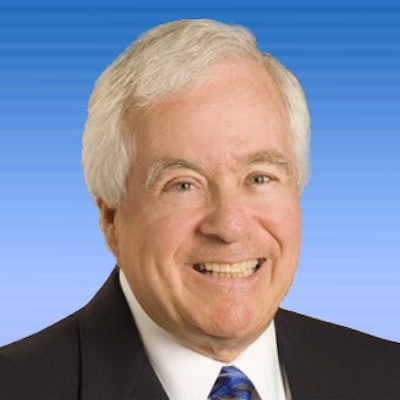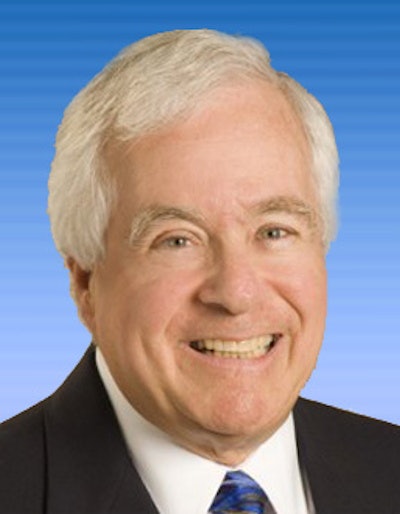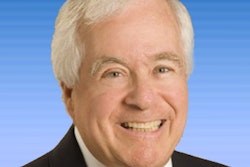
The startup dental service organization (DSO), from the perspective of owners, management team and professional employees, has a risk in maintaining an adequate capitalization base in the short term -- and especially in the long term.
A positive line of communication between management and the professional team is a must for the DSO. From a professional dentist's point of view, when the DSO is not funded properly, the ability to have enough supplies on hand, money for payroll, and other needs frequently lacking, the thought of the employee is, "Why is this happening?" These occurrences create morale issues and reliability problems, as well as damage the reputation of the startup.
Besides requiring adequate capital, another area of concern for the startup DSO is the need for an experienced, business-oriented, and sound management team. Compared with an existing well-funded and expertly managed DSO, the startup may struggle to maintain its personnel, relationships with suppliers, and, very importantly, with its lenders and investors.
How many startup DSOs, similarly to startup dental practices, don't have the proper advisors necessary to compete for sufficient funding? Do the startups have the ability to have a positive response when the need for further investment or working capital arises? What are some of the specifics missing in the startup that the thriving DSO has overcome? The following paragraphs list some of the hardship examples and concepts for curing the problems necessary for the startup DSO to become a successful DSO.
Some points that hinder the startup DSO's success
The startup DSO has incredible expenses to get its doors open in a positive manner. Those not intimately involved with business expenses of the type needed for long-term growth and private offerings to raise capital will be terribly surprised when the interviews with the professionals occur and their fee quotes are heard.
 Bruce Bryen, CPA, CVA.
Bruce Bryen, CPA, CVA.Attracting investors as part of the business plan that has acquisitions as an integral ingredient for success must be accompanied by important advisory names who are recognizable and experienced. Remember, experienced attorneys who know how to prepare private placement offerings do not charge inconsequential fees. Raising money has a charge, as do the certified public accounting (CPA) firms and other advisors who have the experience in taking startups and smaller businesses to the next level.
The fully operational DSO has already paid these charges and has the name recognition that goes with the attorney's name on the papers needed for execution. The CPA firm with the experience in this type of work has a name recognition factor that assists when a potential investor looks at the financial statements. The lenders and investors of significance want these types of expensive, experienced business people on board to assist in the approach to the startup so that the process is a smooth one. Egos must be put aside if the DSO is going to be successful.
Lenders also have a comfort level when they recognize the names of the professional advisors of substance and experience. If the startup DSO is composed of successful dentists who capitalized the startup and are managing it, they are accustomed to funds being available from profits or their bankers. When dentists are the source of funding and additional "calls" for capital are placed, the reality is that the nonsophisticated investor/dentist will probably hedge and stall prior to understanding that the call is not a request but rather a need and demand.
This is so different from a successful DSO following a budget and sending the need for funds to its owners. These are probably hedge fund managers, venture capital firms, and individually wealthy businesspeople who understand and want budgets and desire to see them followed in an orderly fashion.
Lines of communication
Communication is typically a missing item when problems arise.
Successful DSOs have solid lines of communication between management and those working at the DSO. A reason why there may be a situation of fault in talking points may be the lack of funds available for management and the unwillingness to have honest discussions with the staff, especially the professional dental employee, about the problems. There may be an embarrassment with the directive of the owners to be vague about why not enough supplies are on hand or why paychecks are running late or are incorrect. An adequate capitalized DSO does not have this problem.
The startup DSO may have been founded by a group of financially successful dentists who are excellent clinicians and think they are good managers. However, they are learning the hard way that the DSO is not like the practice they ran. The need for funds on the DSO scale far outweighs that of the solo or smaller dental practice.
Telling the truth to the employees is a stressful point when it is money that is the problem. A cure is that a line of credit can be opened if the originators of the startup DSO don't want to (or can't) make another capital investment. Lenders typically require personal guarantees of owners of small businesses, which may create another situation for the original investors.
Another source is to add additional investors. This, of course, reduces the originators' percentage of equity positions and they are usually not happy about the circumstance. This may cause them to delay in this approach.
Either of these decisions is difficult, but communicating the facts is critical to the DSO's success. If money is the issue, delaying or not acting to cure the problem immediately will cause long-term losses of personnel. There may be other issues than funding. However, without honest communication with the management team and the employees, they will not know.
Analysis of the management team
Which came first: the chicken or the egg? This question has a comparison to what is more important for a DSO: Is it the funding or the experienced management team?
Just like the first query, the answer is almost the same in that it doesn't matter. Both questions and answers are extremely important. Success is a result of both being addressed almost simultaneously.
Without the professional management team, a DSO is likely not to survive. Regardless of how successful the dentist may have been in managing his or her own practice, the DSO is much larger with more egos to soothe than the dental practice that the investor/dentist was probably managing. Decision-making involving substantial monetary points of view also is more intricate than in the individual practice. The standard dental practice with even a few owners almost always had those owners' egos bathed from their employees. Now the owner must reckon with the dentists who work for the DSO and their personalities.
Retaining the professional management team means that proper capitalization must be available. The managers may be former dentists. However, more likely, they are successful businesspeople used to what is needed for a profitable organization to continue with its plans for growth.
It is smarter to have the investment available and the management team in place while attempting the hiring process to begin the startup DSO. Attempting various rounds of funding while the growth is occurring without a strong performance record makes the job harder. Properly capitalized DSOs look to venture capital firms, hedge funds, or individual investors who have business experience, not necessarily in the field of dentistry for their financial base. These types of people will insist on good communication, a strong capital base, and managers with business experience. Organizational articles, as well as shareholders and employment agreements, will be prepared so that future hires will be more easily attained and expansion available with a reasonable economic base and the proper management team. The plans for expansion can't be achieved without the management team and the necessary funding.
Disregarding the startup and selling to an existing DSO with a strong capital base and solid management team
DSOs look for dentists who want to sell their practices for any number of reasons. One may be that the selling dentists are fed up with the management time and requirements needed to have their practice continue to grow and remain profitable. Another may be that the sellers are older dentists who want to retire and did not properly plan for an exit strategy.
The DSO can be a perfect transition situation for dentists who want to sell but need a few more years of working and earning to retire in the manner that they would like to live for the rest of their lives. The DSO gives the transitioning dentist the opportunity to sell the practice then work in the clinical areas and earn a reasonable amount of money for that type of effort and production, including fringe benefits and bonuses.
The DSO provides all of the management services that the dentist typically detests. At an agreed-upon time, the dentist who has sold to the DSO leaves the practice and the DSO takes over the clinical side as well. This creates a winning situation for both the DSO and the transitioning dentist.
Sometimes shares in the DSO are available for the dentist who has transitioned to it. The DSO has its management team in place and is responsible for all administrative, legal, accounting, hiring, providing personnel, purchasing, and all other nonclinical details.
Comparing this situation of the sale to an established DSO versus a startup, other than the glory and ego involved if the startup is successful, there is almost no question of which is the better opportunity. The concept of growth and expansion is already at hand with the established DSO as well, compared with the startup. With the proper capitalization, experienced management team, and outside advisors who have experience working with DSOs, additions to the established DSO number of dental offices will most likely be secured, profitable, and well run. The entire process will occur according to the budget provided and will be supervised by the management team with investors happy and expecting a positive outcome.
Bruce Bryen, CPA, CVA, is a certified public accountant and a certified valuation analyst with more than 45 years of experience. You can learn more about him and his services here.



















